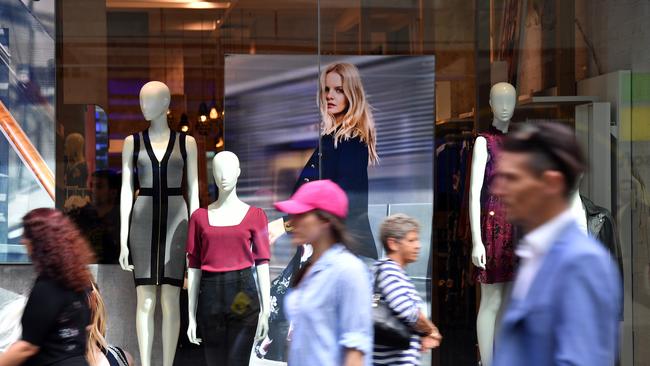Australian retailers need a level playing field
Retail is already tough enough without giving offshore competitors a free kick.

In many areas today’s Australian enterprises must compete with the best in the world. But they have no hope of generating employment if local laws discriminate against them.
Recognising this, last year parliament attempted to even the playing field for Australian retailers competing with overseas suppliers. Its intentions were good, but the legislation was flawed and in coming months and years many thousands of Australian enterprises will now be driven out of business because of unfair competition.
As I explain below, the mistake can be fixed relatively easily. If Australia does not block the loopholes, not only will it boost unemployment, but it will undermine significant parts of the GST collection system.
This is the second in my series about actions taken by our politicians that threaten to trigger increased unemployment.
In the first, I argued that our big debts make this a bad time for technology-fuelled unemployment.
The series was prompted by UBS research which shows that Australia is set to have much higher unemployment in the next year, meaning any consequences for employment stemming from the actions of our politicians become all the more important.
Until last year overseas online retailers didn’t have to pay GST on orders less than $1,000 and also missed out on paying duty and Australian Border Force handling charges. Australians enterprises had no way of competing because the field was tilted against them.
We changed the rules, but the legislation was easily bypassed, and Australian enterprises are still being prevented from competing fairly with their overseas rivals.
Under the amended legislation, overseas organisations were given the responsibility first of collecting the GST on purchases made by Australians. Then they had to remit that GST to the Australian Government.
To be able to undertake such tasks overseas suppliers to Australia had to register for GST. It sounded good, but it did not work. It’s true that the major corporate overseas suppliers registered but as Australian buying overseas online exploded treasury estimates that only about 30 per cent of Australian goods purchased online is made via GST registered collectors.
The majority of overseas suppliers avoid the GST.
So smaller businesses around Australia, from retailers of motor parts and drones to musical instruments and toys, must pay GST while their overseas rivals do not. They can’t compete.
The list of non-GST registered suppliers to the Australian market is exploding as word of the racket spreads. The situation is made worse by the fact that if goods are invoiced for less than $1,000, they don’t attract duty or Border Force charges but there is no mechanism to reconcile the actual purchase price paid by Australians with the invoice price. There is an additional loophole in the system whereby suppliers are allowed to have $75,000 of invoices free of any GST, duty and Border Force charges.
Some of the overseas suppliers have cottoned onto this and set up a string of companies each owned by a different employee that stops trading when $75,000 is reached.
As a result, there is a huge rush of goods coming into Australia with invoices under $1000, so no GST, duty or Border Force handing fees are payable.
Australian retailers buying overseas pay GST, the duty and border force charges, and so can’t compete. In theory, part of the problem can be overcome by substantially increasing the resources of the Australian Border Force to monitor the huge avalanche of parcels coming from overseas that are invoiced at under $1000. But that is simply not practical.
The only way to collect both Border Force charges and the GST is to make the levy at the point of payment by the Australian consumer. Naturally if the playing field is made equal Australian consumers will not be pleased, but the mechanism is relatively simple and is not difficult to introduce into the banking system.
Under such a system, when a person uses a debit or credit card or phone for purchases overseas the GST would be automatically added, as would be a handling fee from the Australian Border Force. If a person is transferring money to relatives or friends overseas where no goods or services are being purchased, then that person would need to make a declaration.
In addition, a number of goods do not qualify for GST — certain medical items would be high on that list. Locally we have an elaborate system whereby when you pay GST on goods where GST does not apply you can claim it back from the government.
There would be no difficulty in adding goods from overseas onto this well-established system. If we don’t act then we are going to wipe out a large number of conventional and online retailers and their employees who have no hope of competing. And if we act, Australia will raise very large sums.
In this current tough environment it is not easy being an Australian retailer, whether you operate online, via a retail shop or both. Parliament can’t change that, except through overall economic adjustments. But what it can do is to make the playing field even, so that everyone competes on the same basis.
This is a matter where both our major political parties can come together and make what is a relatively simple change to promote Australian employment, not by giving Australians an unfair advantage over their overseas competitors but by levelling the playing field and ending a racket.
Tomorrow I’ll discuss how legislation threatens many unsuspecting enterprises.





To join the conversation, please log in. Don't have an account? Register
Join the conversation, you are commenting as Logout